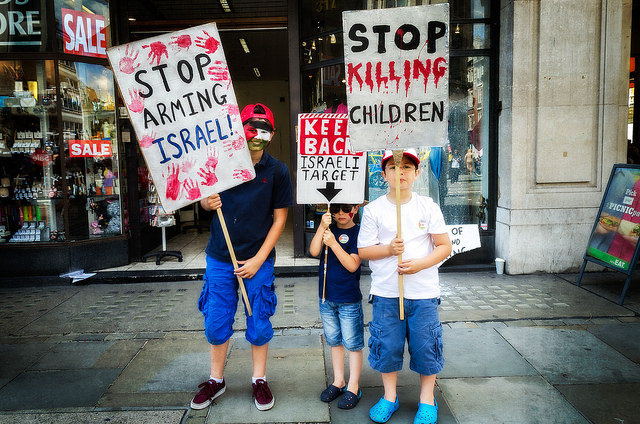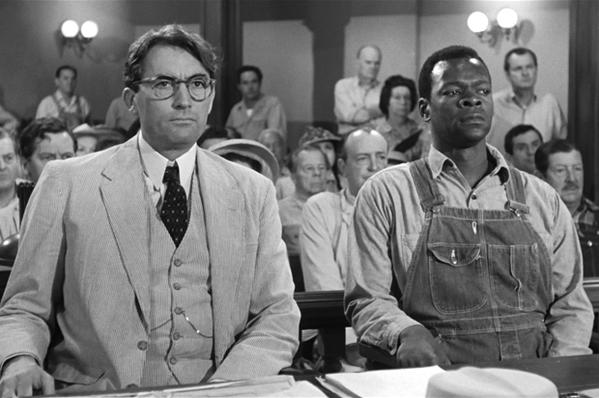
On Tuesday September 9, Dov Waxman made his professorial debut to the Northeastern community with his lecture on the Gaza-Israel War. The lecture and Q&A session, Judging the Gaza War (From Afar), were part of the university’s series on Controversial Issues in Security Studies.
Admittedly reluctant to address the topic, Professor Waxman opened his lecture by noting his personal proximity to “the conflict.” With his feelings raw after a summer in Israel, Waxman found himself deeply affected by the conflict in the region. Nevertheless, he came to the decision that, despite an inherent lack of objectivity, Northeastern presented him with the ultimate setting for dialogue on the Gaza-Israel War: an environment in which members of our community could productively and civilly engage in open conversation.
Waxman then moved to the facts: in 50 days of fighting more than 2,100 were killed. Meanwhile, the world outside of Israel and Palestine watched amidst endless debate and coverage by news sources – once again turning us into an “international jury,” who, from a safe distance, pass what oftentimes prove to be judgments steeped in arbitrary biases that are inconsistent and ill informed.
Being among the plethora of foreign travelers who found ourselves in Israel and Palestine this past July, it holds true the distance from which we judged was neither far nor “safe,” by normal standards. Arriving in Israel the night of July 2nd, along with 15 other Northeastern students and professor Lori Lefkovitz, our group planned to spend the next month traveling and studying political science and literature in Israel for the dialogue Contemporary Israel and its Complexities. In our experiences of running, or rather, walking, to bomb shelters amongst relatively impervious faces of the tourists and citizens of Jerusalem, it was hard to fully understand the inherent fear constantly expressed by Israelis. At one moment, a local Israeli may be reiterating the un-subsiding, omnipresent fear that consumes his or her lifestyle; the next, they are contrarily criticizing Northeastern’s decision to evacuate its students a week earlier than scheduled from the area. The two points were touched in a conversation with the man sitting next to me on our El Al flight from Tel Aviv to Heathrow, in which he argued that the people of Israel cannot live in such fear, while also making the point, in regards to our evacuation, that we were safer in Israel than in Boston. The experience, however, did emphasize Waxman’s point that judgments of those living in conflict zones are often so replete with bias and personal attachment that they can’t see the big picture “through the smoke.”

How then, can one properly assess a conflict without seeing the facts as presented in their original environment? The answer to the question was the crux of Waxman’s lecture: by using strategic and moral lenses one must analyze both the necessity and morality of a conflict.
To strategically analyze a situation, one must turn to the words of Prussian leader Carl von Clausewitz: “War is a mere continuation of politics by other means.” This is to say, success will be measured by the strategies and policies of the protagonists. In the case of Hamas, the strategy was not to destroy, push out, or even repress Israel – but rather to regain political capital lost due to the changing political climates in its former allies in Syria and Egypt. Hamas’ regional isolation stems from two major shifts in the region: weakened alliances with Syria and Iran due to its opposition of the Assad regime, and the 2013 overthrow of Egyptian leader Mohammad Morsi and the Muslim Brotherhood. In an effort to regain lost political fortunes, Hamas’ strategic goal became to end the Egyptian/Israeli blockade of Gaza. While recent polls reveal that a majority of Palestinians would now vote for Hamas in formal elections, the physical boundaries gained in the war have amounted to little more than a few nautical miles.
Israel’s goals were not as distinct. Rather, they proved to be vague and shifting with the escalation and progression of the conflict (i.e. the destruction of the tunnels into Israel only became a focal point midway into Operation Protective Edge). Overall, Israel’s main objectives were to first destroy Hamas’ military, and second deter them from committing any further acts of aggression in the region. While Israel may have temporarily succeeded in exhausting and degrading Hamas’ military resources, an Israeli diplomat has recently made the claim that the group has already begun to rearm [albeit the validity of this claim is being called to question by security officials]. In terms of the deterrence of the threat of Hamas to Israel, Waxman poses that only time will tell whether or not the efforts of Operation Protective Edge prove effective.
Statistically, there is one thing Israelis and Palestinians today are agreeing upon: “winners.” In a poll conducted by the Palestinian Center for Policy and Survey Research, 79% of Palestinians believed Gaza had won the war; when asked, a majority of Palestinian citizens believe that they proved to be more successful in achieving their goals in the conflict. A study conducted by the Shiluv Millward Brown Market Research Group revealed that 54% Israelis believe they had lost the war, indicating that, as Waxman noted, the war to Israelis was, at best, a draw. But one would be remiss to disregard the fact that Israel could have, strategically, beat Hamas. However, such an exhibition of military strength would have presented a myriad of setbacks including more casualties, more enemies, and an occupation of Gaza with no exit strategy. Moreover, the absence of Hamas would potentially create a foundation for alternative jihadist groups, thus bringing Israeli officials to the conclusion Waxman describes as, “better the devil that we know.”

The moral lens is not as cut-and-dry in its analysis of the conflict. Contrary to popular sentiment regarding the morality of war, Waxman puts forth that are not to be evaluated by casualties but rather, intentions. Further clarification of a morally righteous war is found in the tenants of the “jus ad bellum” component of Just War theory: just cause, comparative justice, competent authority, right intention, probability of success, last resort, and proportionality.
In an application of the theory, the aggression exhibited was not a last resort for either side. Hamas refused negotiations, whereas Israel used the kidnapping of the Israeli teenagers in June as a justification to arrest hundreds of those believed to be associated with Hamas.
The principle of proportionality is also violated on both sides as Hamas proves willing to put civilian lives in danger, while Israel lacks restraint as they succumb to a strategy which, Waxman holds, rests upon the deaths of civilians.
Ending his lecture with the hackneyed comparisons of American actions in Iraq and Afghanistan, Waxman concludes that through the haze constructed by the complex theories of the conflict and what constitutes “just,” the Gaza-Israel War has proved to be a moral failure for both sides.
References:
[1] http://www.jpost.com/Middle-East/Hamas-Haniyeh-would-trounce-Abbas-if-elections-held-today-Palestinian-poll-says-374297
[2] http://www.jpost.com/Arab-Israeli-Conflict/Hamas-already-rearming-preparing-for-next-round-of-fighting-with-Israel-374674
[3] http://www.latimes.com/world/middleeast/la-fg-palestinians-hamas-israel-war-gaza-20140902-story.html
[4] https://www.middleeastmonitor.com/news/middle-east/13774-poll-54-per-cent-of-israelis-believe-they-lost-the-war



